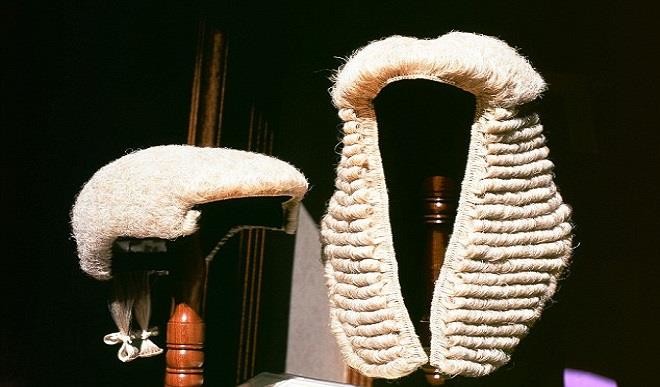Anti-graft war:NJC’s inability to fight corruption has eroded public confidence in judiciary -Civil society
The Civil Society Network Against Corruption (CSNAC) has said that the failure of the National Judicial Council (NJC) to purge the nation’s judicial system of corrupt practices has eroded public confidence in the sector. Olanrewaju Suraju, the Chairman of CSNAC, a non-governmental organisation, stated this in a statement made available to the News Agency of […]


The Civil Society Network Against Corruption (CSNAC) has said that the failure of the National Judicial Council (NJC) to purge the nation’s judicial system of corrupt practices has eroded public confidence in the sector.
Olanrewaju Suraju, the Chairman of CSNAC, a non-governmental organisation, stated this in a statement made available to the News Agency of Nigeria (NAN) in Abuja on Tuesday.
Suraju said that the nature of sanctions on some erring judges had cast serious doubt on the commitment of the Council to restore public confidence in the judiciary.
He said the slow pace and in some cases deliberate refusal of the NJC to investigate and sanction judges accused of corruption and other acts of professional misconduct had encouraged corruption in the judiciary.
The CSNAC chairman said NJC’s claim that it was committed to the anti-graft fight by government in the face of “frivolous injunctions” by judges was false.
“In several other cases, judges involved in the trial of corruption cases as well as the appellate courts have granted stay of proceedings to stall the prosecution of corrupt people in the society.”
He said that apart from the case of Justice Mohammed Yunusa, who was recently recommended for retirement by the Council, no other judge had been sanctioned by the NJC for frustrating the fight against corruption.
Suraju said the Council did not act in Yunusa’s case until CSNAC compiled seven cases where he allegedly restrained EFCC, ICPC, the Inspector-General of Police and Attorney General Federal from prosecuting some people accused of diverting billions of naira.
He said the claim of NJC that it dealt with allegations of misconduct against judicial officers had compelled CSNAC to ask why NJC had not investigated alleged judicial corruption against some judges.
He said the petitions yet to be investigated, were those against Justice Babatunde Adejumo, President, National Industrial Court for granting ex parte orders against two state governments filed by Edo and Oyo governments.
The other case was against the President of the Court of Appeal for alleged failure to hear and determine the appeal filed by the EFCC in 2008 at the Court of Appeal against the judgment of Justice Ibrahim Buba in the Odili case.
He said Mr Abubakar Mahmoud, the incumbent President of Nigerian Bar Association prosecuted the case on behalf of the EFCC.
The others were; Justice Uwani Abba-Aji of the Court of Appeal, Justices Ibrahim Auta, and Hyeladzira Nganjiwa of Federal High Court.
He said the cases cited above were among several others alleging corruption and misconduct on the part of some members of the NJC and other judges who were said to be untouchable in the judiciary.
This, he said, led to the DSS sting operation to end impunity in the Nigerian judiciary.
He said that CSNAC was of firm opinion that corruption and impunity in the judiciary posed serious danger to the nation.
He called on the Council to join the calls to rid the judiciary of bad eggs in the interest of justice, democracy and good governance by investigating the petitions without any further delay. (NAN)
